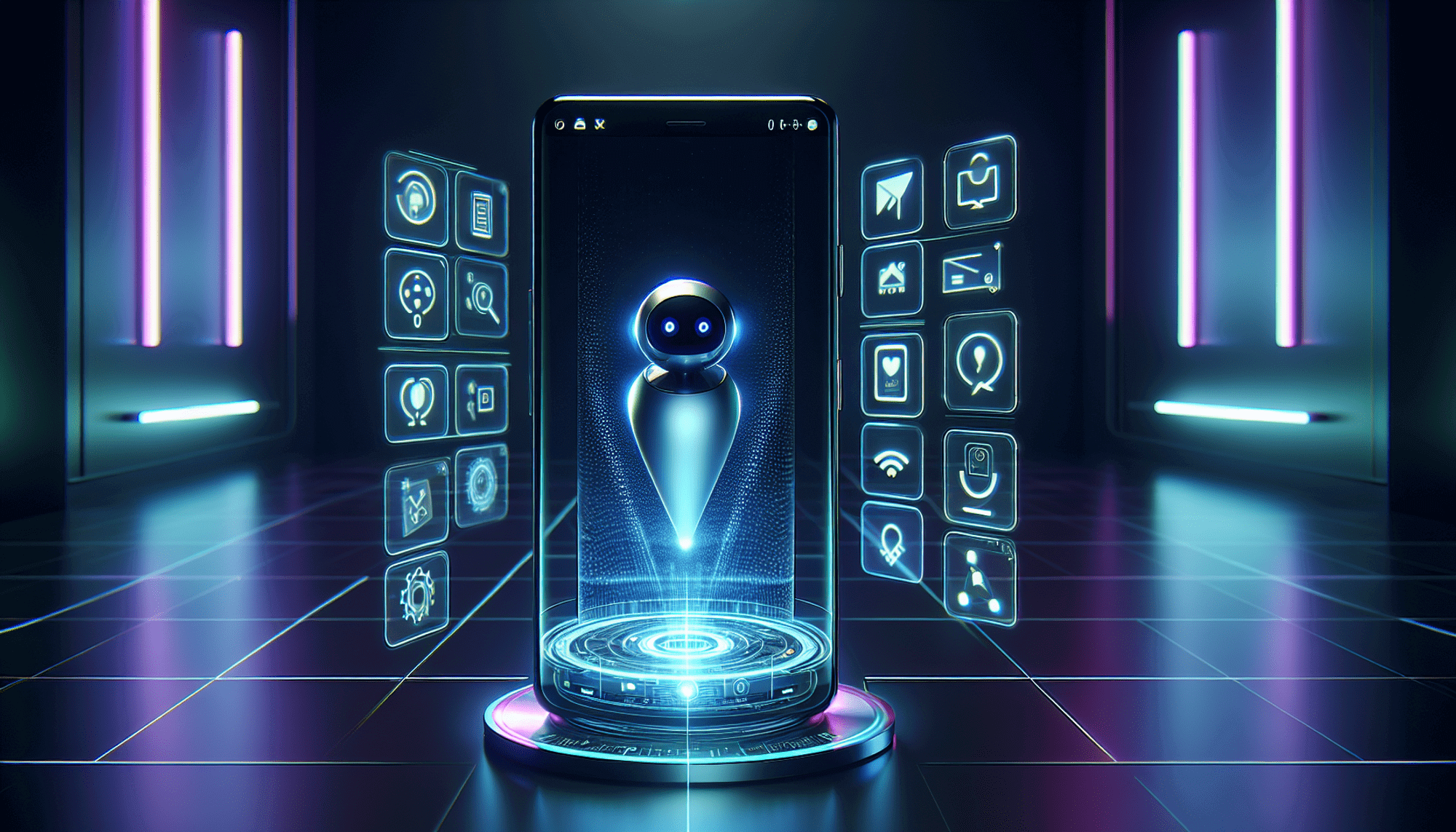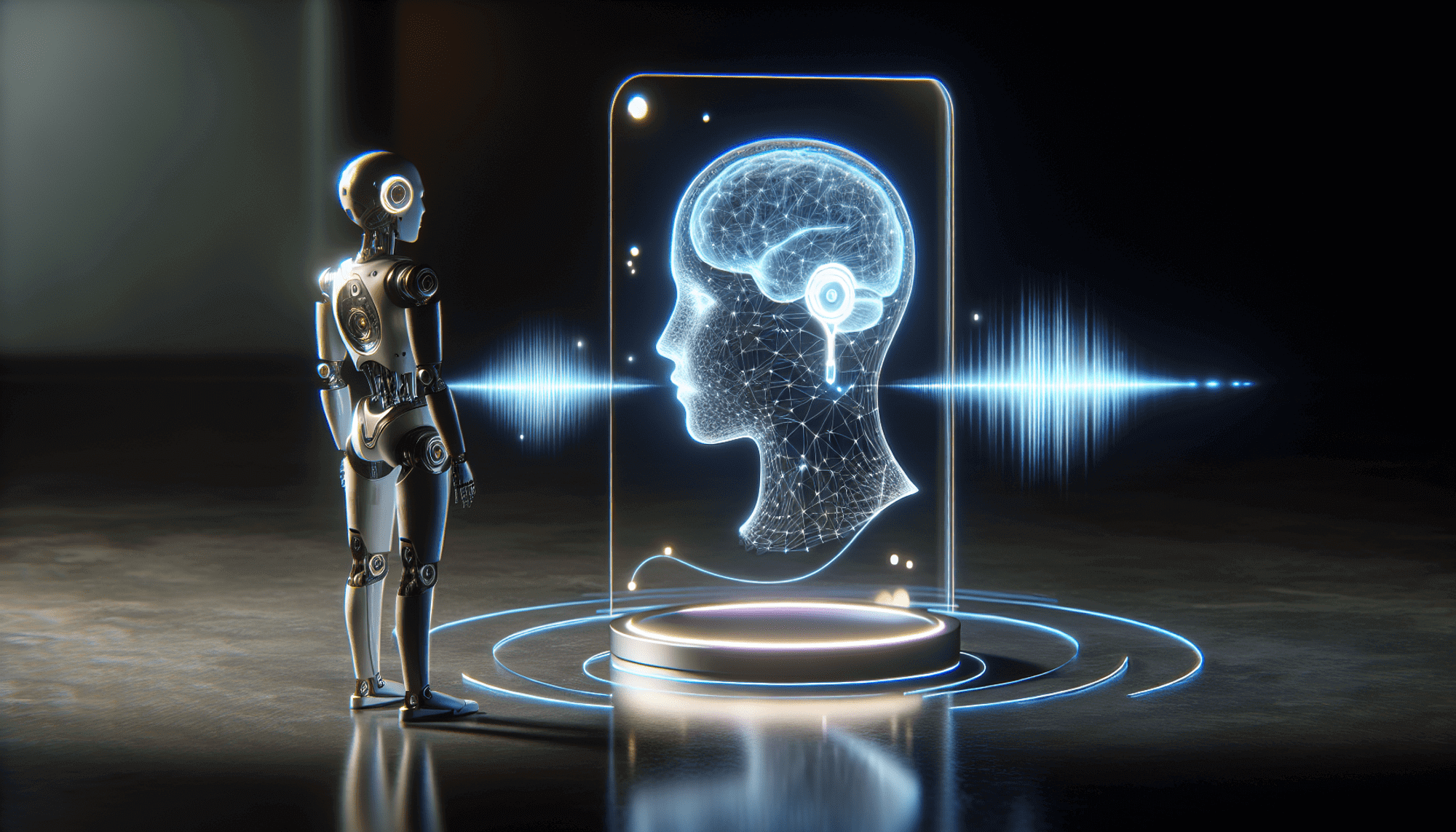






Table of Content:
The Power of AI Conversational: Revolutionizing Communication

Artificial intelligence (AI) has been transforming various aspects of our lives, and one of its most impactful applications is in the field of communication.
AI conversational technology has revolutionized the way we interact with machines, opening up new possibilities and enhancing the overall user experience.
Understanding AI Conversational Technology
Before delving into the impact of AI conversational technology, it is important to understand the basics of how it works. In simple terms, AI conversational technology allows machines to understand and respond to human language in a natural and interactive manner. By employing techniques such as natural language processing and machine learning, AI conversational systems are capable of engaging in dynamic conversations that mimic human-to-human communication.
The evolution of AI in communication has been a remarkable journey. Initially, chatbots and virtual assistants were restricted to providing predefined responses based on keyword matching. However, with advancements in AI, these systems have become more sophisticated and are now capable of understanding the context, intent, and sentiment behind human queries.
One of the key components of AI conversational technology is natural language processing (NLP). NLP is a subfield of AI that focuses on the interaction between computers and human language. It involves the analysis and understanding of human language, enabling machines to interpret and respond to text or speech inputs. NLP algorithms are designed to extract meaning from unstructured data, such as written text or spoken words, and convert it into a format that machines can understand.
Machine learning is another crucial aspect of AI conversational technology. It is a branch of AI that enables machines to learn from data and improve their performance over time without being explicitly programmed. In the context of conversational technology, machine learning algorithms are trained on large datasets of human conversations to learn patterns, understand context, and generate appropriate responses. This continuous learning process allows AI conversational systems to adapt and improve their conversational abilities with each interaction.
As AI conversational technology continues to advance, it is not limited to just text-based interactions. Voice assistants, such as Amazon's Alexa or Apple's Siri, have become increasingly popular and are now integrated into various devices, including smartphones, smart speakers, and even cars. These voice assistants utilize AI conversational technology to understand spoken commands, answer questions, and perform tasks, making them a convenient and hands-free way to interact with technology.
Furthermore, AI conversational technology has found applications in various industries. In customer service, chatbots are being used to provide instant support and answer frequently asked questions, reducing the need for human intervention. In healthcare, AI conversational systems are being developed to assist doctors in diagnosing illnesses and providing personalized treatment recommendations. Even in education, AI conversational technology is being utilized to create interactive learning experiences and provide personalized tutoring.
Overall, AI conversational technology has come a long way from simple keyword matching to sophisticated systems that can understand and respond to human language in a natural and interactive manner. With advancements in natural language processing and machine learning, these systems continue to evolve, opening up new possibilities for human-machine interaction and revolutionizing various industries. The future of AI conversational technology holds great potential, and it will be fascinating to see how it continues to shape our lives.
The Impact of AI Conversational on Various Industries
AI conversational technology is making waves across various industries, transforming the way organizations interact with their customers, patients, and students. Let's explore some key sectors where AI conversational systems are reshaping communication:
AI Conversational in Healthcare
In the healthcare industry, AI conversational technology is empowering patients with self-service tools and providing personalized assistance. Patients can interact with AI-powered chatbots or virtual nurses to get immediate answers to their queries, schedule appointments, or receive guidance on managing chronic conditions. This not only improves access to healthcare information but also reduces the burden on healthcare providers.
Furthermore, AI conversational systems can analyze patient data and provide insights to healthcare professionals, helping them make more informed decisions. By leveraging natural language processing and machine learning algorithms, these systems can identify patterns and trends in large datasets, enabling early detection of diseases and more accurate diagnoses.
Moreover, AI conversational technology is being used in telemedicine, allowing patients to have virtual consultations with healthcare providers. This is particularly beneficial for individuals in remote areas or those with limited mobility, as it eliminates the need for travel and provides convenient access to medical expertise.
AI Conversational in Customer Service
In the realm of customer service, AI conversational technology is revolutionizing the way companies engage with their customers. AI-powered chatbots can handle routine customer inquiries, provide real-time support, and even process transactions. By automating these tasks, businesses can deliver faster and more efficient customer service while also freeing up human agents to focus on more complex issues.
Moreover, AI conversational systems can analyze customer data and generate personalized recommendations or offers. By understanding customer preferences and behaviors, businesses can tailor their marketing and sales strategies, resulting in higher customer satisfaction and increased revenue.
Additionally, AI conversational technology can be integrated with voice assistants, allowing customers to interact with businesses through voice commands. This provides a seamless and hands-free experience, enhancing convenience and accessibility for individuals with disabilities or those who prefer voice-based interactions.
AI Conversational in Education
In the education sector, AI conversational technology is enhancing the learning experience for students. Intelligent tutoring systems powered by AI can adapt to individual learners' needs, provide personalized feedback, and offer additional support. This enables students to learn at their own pace while receiving targeted assistance, ultimately improving their academic outcomes.
Furthermore, AI conversational systems can facilitate collaborative learning by promoting interaction and engagement among students. Through virtual discussions and group projects, students can develop critical thinking, communication, and problem-solving skills in a digital environment.
Moreover, AI conversational technology can assist teachers in creating personalized learning plans for students. By analyzing student performance data, these systems can identify areas of improvement and recommend appropriate learning resources or interventions. This helps educators tailor their instruction to meet the unique needs of each student, fostering a more inclusive and effective learning environment.
Additionally, AI conversational technology can provide language learning support, offering pronunciation feedback, vocabulary assistance, and conversation practice. This enables students to develop language skills in an interactive and immersive manner, enhancing their language proficiency and cultural understanding.
The Benefits of Implementing AI Conversational Tools
Implementing AI conversational tools offers a multitude of benefits for businesses and individuals alike. Here are a couple of key advantages:
Enhancing User Experience with AI Conversational
By integrating AI conversational technology into their products or services, businesses can provide a more intuitive and seamless user experience. Whether it's a chatbot assisting customers on a website or a virtual assistant guiding users through a mobile app, AI conversational systems can understand user needs and deliver personalized recommendations, resulting in higher customer satisfaction and loyalty.
Imagine a scenario where a customer visits an e-commerce website looking for a specific product. With the help of AI conversational tools, the chatbot can engage in a conversation with the customer, asking relevant questions to understand their preferences and requirements. Based on the information gathered, the chatbot can then provide tailored product recommendations, making the shopping experience more efficient and enjoyable for the customer.
Furthermore, AI conversational systems have the ability to learn and adapt over time. This means that as users interact with the system, it becomes more knowledgeable and better equipped to provide accurate and helpful responses. This continuous improvement in the system's capabilities further enhances the user experience, as it becomes increasingly adept at understanding and meeting user needs.
Streamlining Business Operations with AI Conversational
AI conversational technology also has the potential to streamline internal business operations. Automated AI-powered chatbots can handle routine inquiries from employees, assist with onboarding processes, or help with HR-related tasks. This reduces the time and resources spent on these tasks, allowing businesses to focus their efforts on more strategic initiatives.
For example, imagine a company that receives a high volume of employee inquiries regarding HR policies and procedures. By implementing an AI conversational chatbot, employees can easily access the information they need without having to wait for a response from the HR department. This not only saves time for both employees and HR personnel, but it also ensures that employees have access to accurate and up-to-date information at all times.
In addition, AI conversational tools can assist with the onboarding process for new employees. The chatbot can guide new hires through the necessary paperwork, provide information about company policies and procedures, and answer any questions they may have. This automated onboarding process not only saves time and resources but also ensures that new employees have a smooth and efficient transition into the company.
Overall, implementing AI conversational tools can have a transformative impact on businesses and individuals. From enhancing user experience to streamlining business operations, the benefits are clear. As technology continues to advance, AI conversational systems will only become more sophisticated, further revolutionizing the way we interact with technology and each other.
The Future of AI Conversational Technology
As AI conversational technology continues to evolve, it is important to look ahead and anticipate the potential trends that will shape its future:
Predicted Trends in AI Conversational
One major trend in AI conversational technology is the integration of voice recognition and natural language understanding. This will allow users to interact with machines using voice commands, making communication even more natural and intuitive.
Another trend to watch out for is the integration of AI conversational technology with other emerging technologies, such as augmented reality and virtual reality. This has the potential to create immersive conversational experiences, opening up new possibilities for communication in various domains.
The Role of AI Conversational in the Future of Communication
AI conversational technology will play a crucial role in shaping the future of communication. As machines become increasingly capable of understanding human language and emotions, communication barriers will be broken down, and interactions with machines will become more human-like.
In conclusion, AI conversational technology has the power to revolutionize communication across industries. Its ability to understand and respond to human language opens up new opportunities for businesses, improves access to services for individuals, and enhances the overall user experience. As AI continues to advance, it is essential to embrace this technology and explore its potential for creating a more connected and efficient world.










